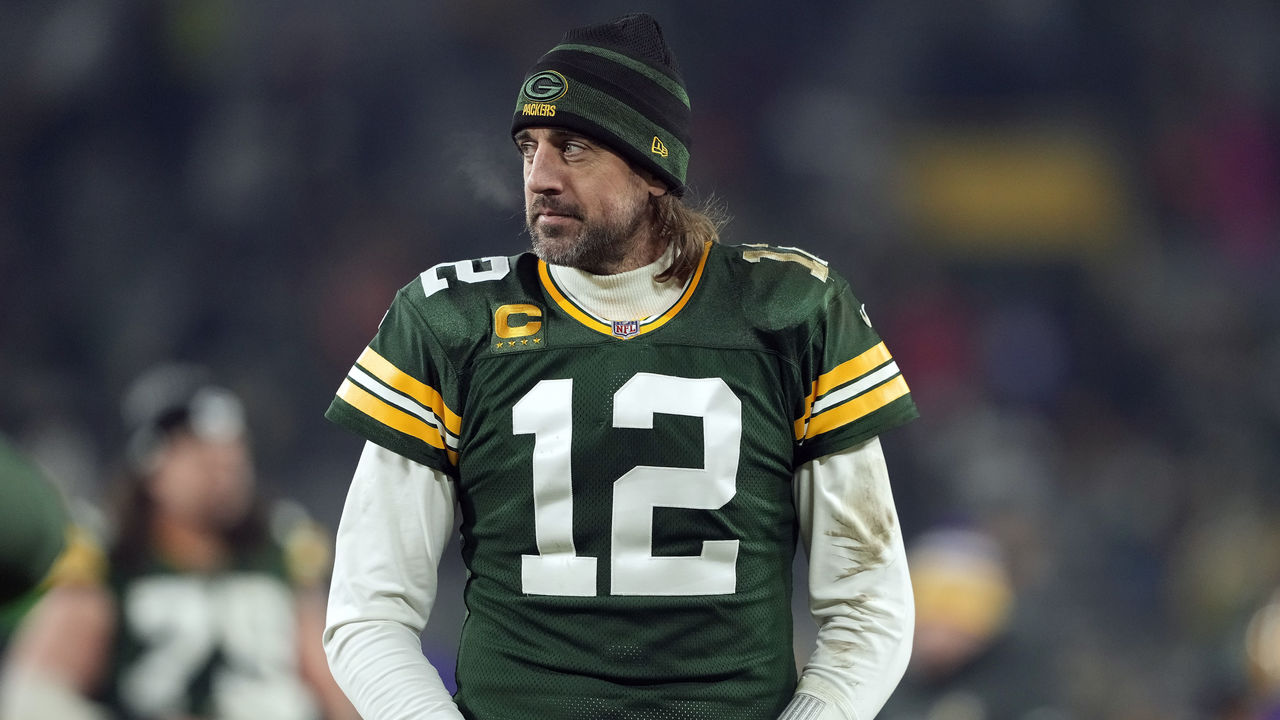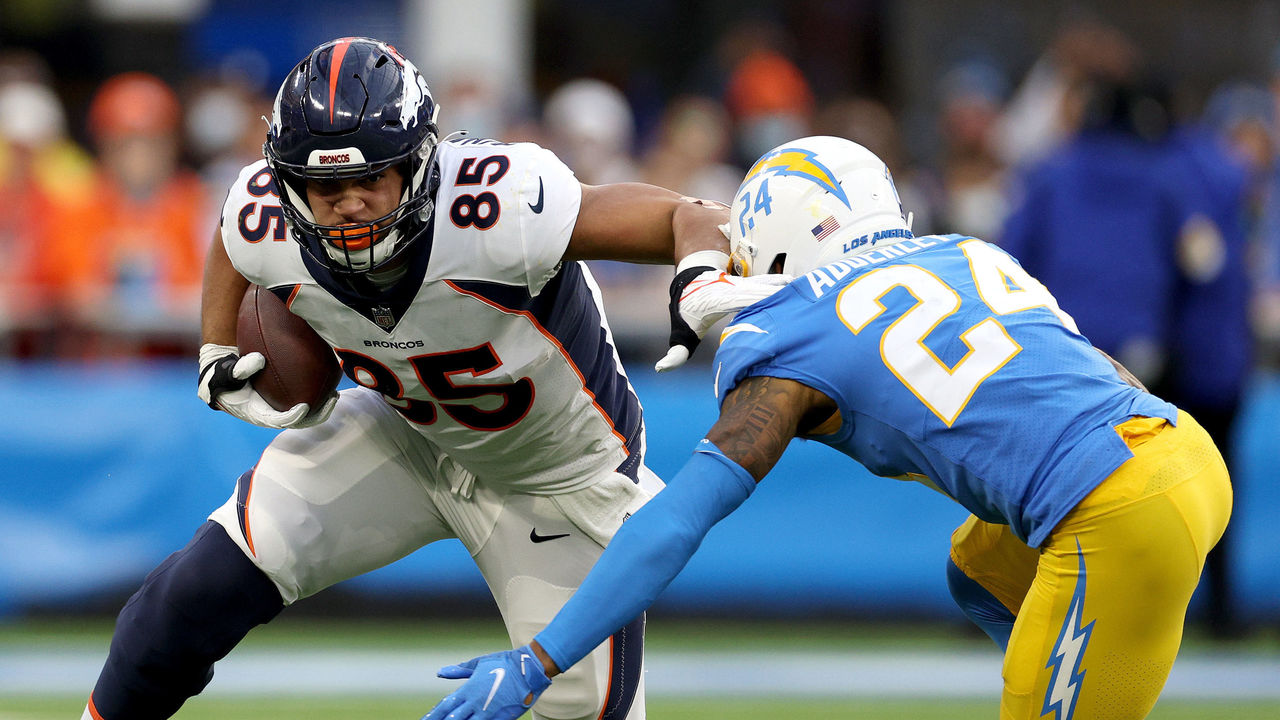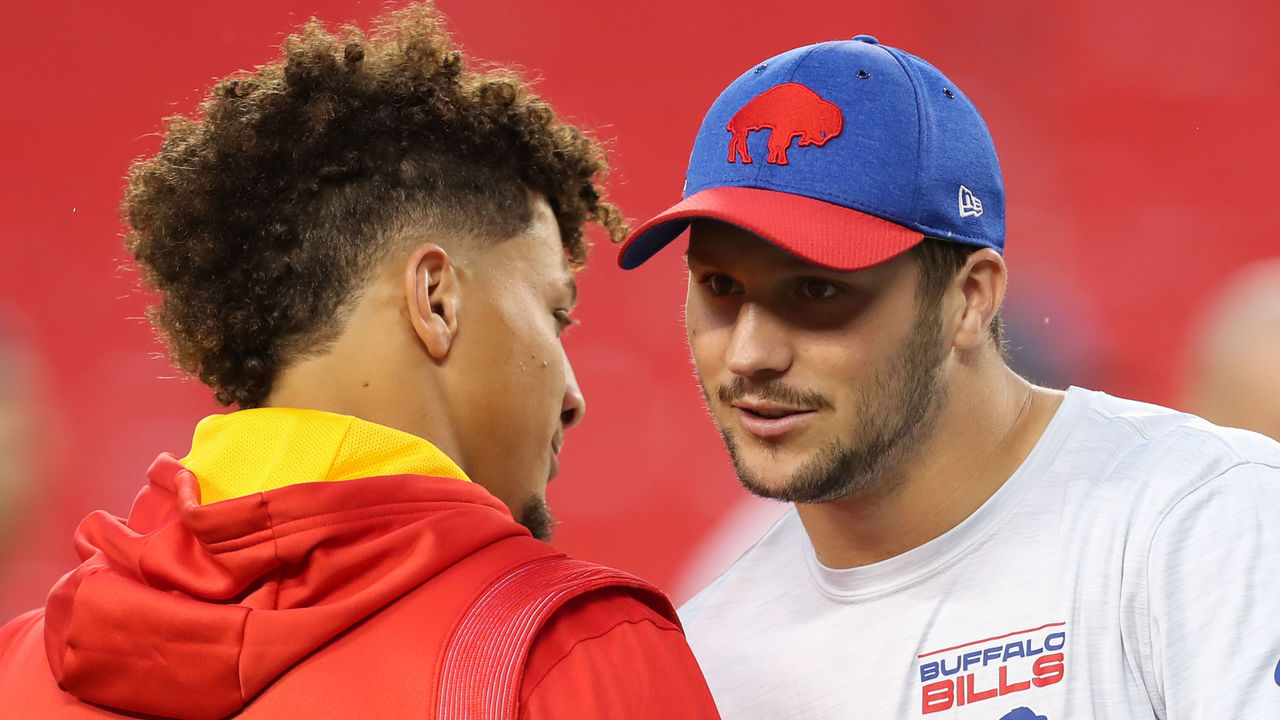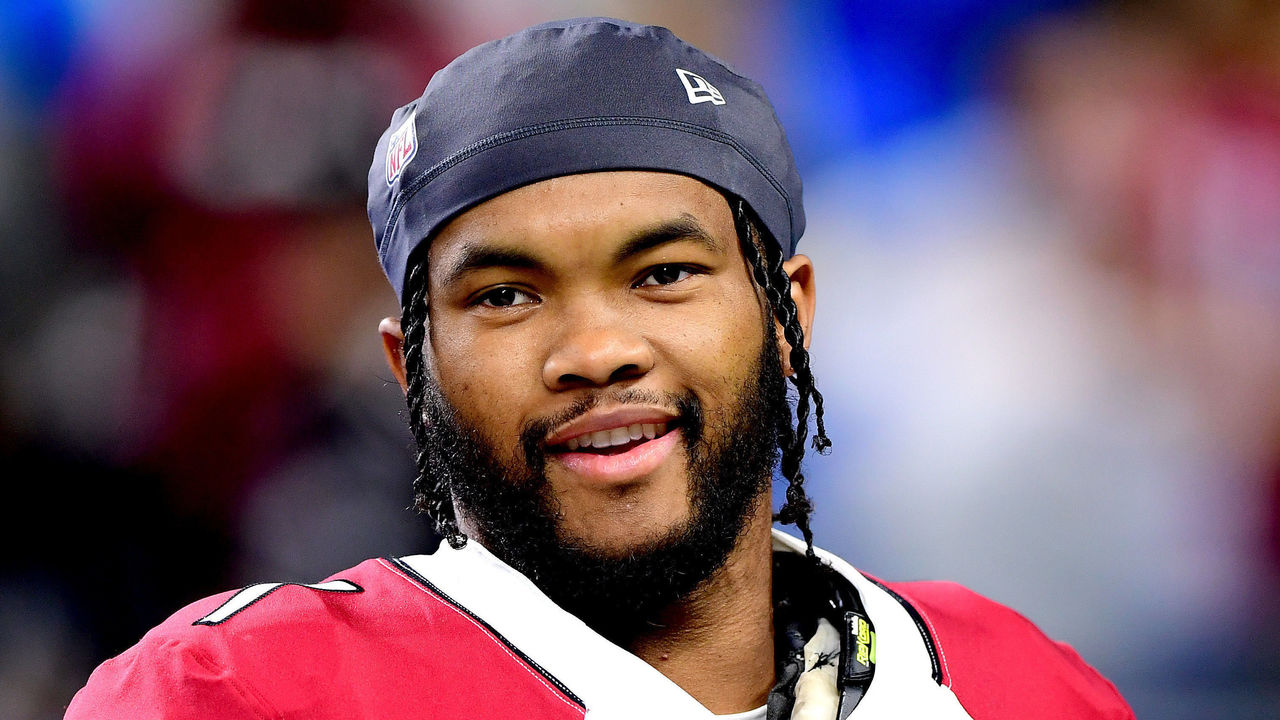The Aaron Rodgers and Russell Wilson news changes everything
After a month of uncertainty, Aaron Rodgers and the Green Bay Packers agreed to remain together. Rodgers was always going to be the first big domino of the NFL offseason, and it didn't take long for the next one to fall: Less than three hours later, the Denver Broncos finally found their replacement for Peyton Manning (who retired six years ago) by trading for Russell Wilson. Let's sum up what it all means.
1. The reported terms of Rodgers' contract extension - maximums of four years and $200 million - would make him the highest-paid player in league history by average annual value. If getting Green Bay to do a deal like this truly was his motive all along, then Rodgers maximized his leverage. All that passive-aggressive, Hamlet-in-a-helmet posturing - from "The Last Dance" memes to the deep background reports of a trade demand or possible retirement - may have been a bunch of hooey; Rodgers is certainly mercurial and pouty enough to make it tough to know for sure. But there's no doubting he eventually bent the franchise to his will.
Let ESPN's Dan Graziano describe how spooked the Packers were about Rodgers as recently as last week's combine:
In the meantime, the Packers are being incredibly careful not to say or do anything that would upset Rodgers or potentially turn him away from them. I was having a nice conversation with one Packers official this week, but once I asked a Rodgers-specific question, this individual turned his back and walked away without uttering another syllable. That is not an exaggeration.
Back-to-back MVP awards in a league in which quality QBs are scarce sure go a long way, even for a dude who'll turn 39 before the end of the 2022 season. Whatever method there was to Rodgers' madness, it worked.

2. Ever the troll, Rodgers confirmed via Twitter he'll be back in Green Bay but denied he signed a contract, while also denying the reported terms of the contract he says he hasn't signed. Does anyone else get the feeling he's setting us up to announce the same terms himself as part of a lame crypto ad or something?
3. Remember when head coach Pete Carroll said the Seattle Seahawks had "no intention" of trading Wilson? That was six days ago! The terms of the deal - Wilson and a fourth-round pick in exchange for quarterback Drew Lock, defensive lineman Shelby Harris, tight end Noah Fant, plus two first-round picks, two second-rounders, and a fifth-rounder, according to Fox's Jay Glazer - aren't that far off from what Seattle sent to the New York Jets in 2020 for safety Jamal Adams, which is rather remarkable.
4. The Broncos have started 11 different QBs since Manning retired after winning the Super Bowl at the end of the 2015 season. They haven't reached the postseason since. By acquiring Wilson, Denver is following the recent paths of the Tampa Bay Buccaneers and Los Angeles Rams, who respectively won the last two Super Bowls after bringing in a proven, franchise-caliber QB. In Denver, Wilson joins a skill-position group that includes wideouts Jerry Jeudy, K.J. Hamler, Courtland Sutton, and Tim Patrick; tight end Albert Okwuegbunam; and running back Javonte Williams. It's a dang formidable group, and one that might be the best Wilson has had in his outstanding career.

5. Let's assume the reported terms of Rodgers' deal are accurate. At an average of $50 million per year, it would be valued at 24% of the $208.2-million salary cap at the time of signing, which would be a record. This does not mean Rodgers will be consuming that much of Green Bay's cap for the life of the deal, however. The fine-print details ought to start leaking to the scoop hounds in the days ahead, but in all likelihood, Rodgers' deal was structured in a way to provide the Packers with cap savings this year, while pushing most of the cap impact toward 2025 and 2026, when the cap stands to be substantially higher.
6. Remember, Rodgers had been scheduled to count for $46.7 million against the cap in 2022. If he was going to return, it was always a certainty he'd sign an extension to bring that number down, perhaps by as much as $10 million or more. The Packers are going to need it, too: Their decision to apply the franchise tag to wideout Davante Adams adds another $18.4 million to their already-substantial cap deficit, and they have only eight more days until the start of the 2022 league year, which is the deadline to be cap compliant. Green Bay has already reworked multiple contracts, but its cap gymnastics and roster pruning are just getting started.

7. The AFC West now features Patrick Mahomes, Justin Herbert, and Wilson. The AFC as a whole also has Josh Allen, Lamar Jackson, and Joe Burrow. That's it. That's the takeaway.
8. It's not clear what the Seahawks' plan is right now. They spent the last two years doing a lot to build around Wilson by signing Jamal Adams and wideout Tyler Lockett, and trading for guard Gabe Jackson before giving him a new contract. They still have to eat $26 million in dead money on Wilson's deal, and now they don't have a proven quarterback, which tends to be problematic in the NFL. They ought to have close to $40 million in cap space, per Over the Cap, so perhaps they'll take a run at a veteran like Jimmy Garoppolo, or use the No. 9 overall draft pick they acquired from Denver on a QB. But it's loudly being forecast to not be a great draft for QBs, so ...
9. Denver doesn't need to do an extension to add Wilson. The Broncos are only scheduled to pay him $24 million in 2022 and $27 million in 2023, per Over the Cap. Now, Wilson might soon want a new deal that's more in line with the top of the market (like, say, Rodgers' contract, assuming the terms are accurate). But Denver's also got the ammo to do it: The Broncos are sitting on roughly $24 million in cap space and (also as with Rodgers) an extension would no doubt bring Wilson's short-term cap figure down.

10. If Rodgers is in fact getting $50 million per year, then the top of the QB market is about to take off. There's Wilson, Jackson (who's entering his fifth-year option season), and Kyler Murray (now eligible for a second contract), with Matthew Stafford, Derek Carr, Kirk Cousins, and Garoppolo all entering the final year of their current deals. Other than Wilson, new contracts for those QBs likely won't exceed $50 million, but the tide will indeed continue to rise for all of them. And next year, Burrow and Herbert will be eligible for second deals, too. One thing's for sure: With the salary cap about to make a huge jump in 2023 and beyond, Rodgers' contract will look like a bargain in a few years, no matter the terms.
Dom Cosentino is a senior features writer at theScore.